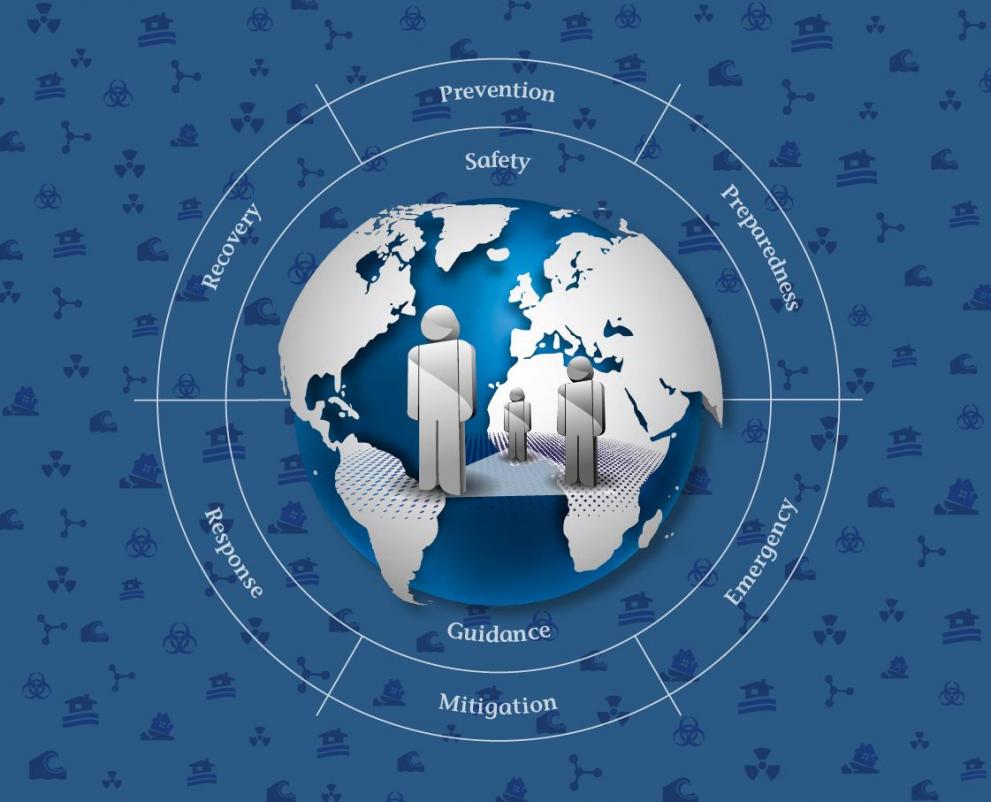
An emergency situation, whether natural or human-made, is a challenge both for political leaders and for those in society who are responsible for managing the related crises.
Governments must be able to rely upon a structurally robust system to effectively cope with the complexity, novelty and uncertainty that characterise societal expectations in relation to modern crises.
To assess similarities in emergency preparedness and response across sectors, identify lessons learned and set out good practices for the nuclear sector the JRC has joined forces with the Nuclear Energy Agency (NEA) and the Organisation for Economic Co-operation and Development (OECD).
The results are published in NEA's report: Towards and all-hazards approach to emergency preparedness and response (OECD NEA EPR).
The JRC's contribution includes insights related to emergency preparedness and response from in-depth analyses of chemical accidents, as well as natural hazard-triggered technological (Natech) accidents, using data from the JRC's Major Accident Reporting System (eMARS) and its Natech accident database (eNATECH). Recommendations from the analysis include:
- Preparedness can make the difference between success and failure in limiting the damages and long term impacts from a disaster. Lessons learned are an enormous reference for identifying gaps in emergency preparedness and also innovative ways to manage both expected and unexpected parts of the response;
- Chemical and Natech accidents can occur in a wide range of industries and scenarios vary widely from site to site depending on the type of danger present and the consequence phenomena that can result. For this reason, training and coordination between internal and external responders on site-specific scenarios is a critical element of preparedness;
- Natech accidents pose specific challenges to emergency management as several accidents can happen simultaneously and impact large areas, affecting people, the natural and built environment, as well as neighbouring industry and infrastructures;
- On- and off-site emergency plans for accidents involving hazardous materials should take the risks from natural hazards into account, and on-site emergency plans should assume that offsite response resources are unavailable under natural disaster conditions;
- The vulnerability of emergency response resources to natural hazards and to hazardous-materials releases should be assessed.
The report is a major milestone towards building an all-hazards approach to emergency preparedness and response.
Through this collaboration, the JRC, OECD and NEA aim to engage international organisations more extensively to build such an approach and ensure that the best preparations are made to protect citizens when disaster strikes.
The JRC and disaster risk management
Faced with the risk of increasingly severe and frequent natural and man-made disasters, policy-makers and risk managers in Disaster Risk Management (DRM) and across EU policies increasingly rely on the wealth of existing knowledge and evidence at all levels – local, national, European and global – and at all stages of the DRM cycle – prevention; reduction; preparedness; response and recovery.
The Disaster Risk Management Knowledge Centre (DRMKC) provides a networked approach to the science-policy interface in DRM, across the Commission, EU Member States and the DRM community within and beyond the EU.
Related Content
Report: Towards and all-hazards approach to emergency preparedness and response
Details
- Publication date
- 17 January 2018
